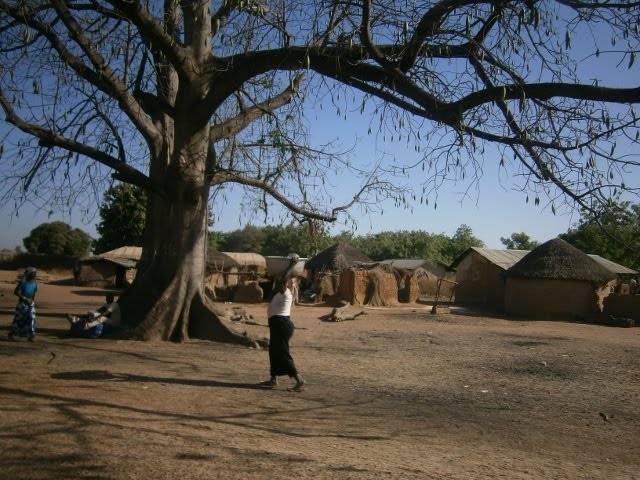My first remedial teaching group of girls was at Limanyirr Primary School. They were funny 10 and 11 year olds, interested and excited to show me what they knew. They have beautiful names: Ziinatu, Nadilia, Rukaya, Muratu, Samia, Shama, Huda, Mufida, Fridous, and Asana. I will have 30 students, in 3 schools, that I will work with an hour a week for 8 weeks and then in April I will get 8 groups of 10 for about 45 minutes per week to assist with their reading literacy. I have so little time to try and make a big difference.
Ghanaian women are know for being good providers, great mircro-farmers and being the mainstay in keeping the family together. In working with these girls the Ghana Education Service hopes that there will be more women succeeding in schools, universities and in the local communities. I am glad to make a small contribution and also teach the local teachers how to reach these children.
Below are some of the students at St. Aidan's Anglican School. I share this school with an excellent teacher from the UK and will be continuing on with this school and five others in the third term when that teacher returns home at the end of her placement. I will miss her knowledge and collaborations when she leaves at the end of March.
This last picture is of Fongo Local Authority Primary at break.

.jpg)
.jpg)
.jpg)
.jpg)
.jpg)







